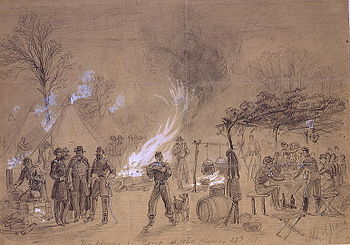
So, it’s that time of year: Time to reflect on the good things in our lives; to appreciate family, friends, community; to consider that for which we ought to be thankful.
I’m grateful for many things, starting with my family, my church and its members, my comrades in the freedom movement and the Libertarian Party, and the wonderful people of Gainesville, Florida, the city I’ve called home for not quite four years since moving south from Missouri.
Then there’s something I had hoped to be thankful for, but that hasn’t really happened yet.
Like many, I expected to spend the last three weeks of November heaving a sigh of relief that the most contentious presidential election of my lifetime is over.
My dog in the presidential fight was never going to win, and I didn’t much care which of the Big Two came out on top. I can’t say I was looking forward to four more years of the same old thing, but I was looking forward to getting the ritual over and done with.
Unfortunately, it continues to drag on. We expected the usual quick mass and communion; instead we’re getting a Pentecostal stemwinder, replete with fire and brimstone.
Oh, the popular votes have been counted and a winner declared, but the Electoral College doesn’t vote until December 19.
It feels like half the country is protesting the outcome as ordained by the existing system (and protesting that system itself to boot), while the other half writhes on one set of tenterhooks or another.
Will the electors vote as pledged based on the popular vote outcomes in their states?
If not, who will they (or possibly the US House of Representatives if no candidate hits the magic mark of 270 electoral votes) send to the White House?
If so, are we in for four continuous years of the same gut-wrenching drama — The Trump Horror Picture Show, 24/7/365? — we mistakenly expected to end on November 8?
Are we even possibly at the beginning of a permanent political crackup, feeling our way through the early stages of some sort of revolution?
All those concerns cast a pretty long shadow over the holiday launched as an official observance on the final Thursday in November by president Abraham Lincoln in 1863, to celebrate a bumper harvest and Union victories at Vicksburg and Gettysburg.
This Thanksgiving feels a lot more like 1939 — the year that president Franklin Delano Roosevelt moved Thanksgiving to November’s fourth, rather than final, Thursday — than like 1863.
At the time of Lincoln’s proclamation, the country’s future was becoming more certain: The Union hadn’t yet won the Civil War but it was clearly going to. The corner had been turned.
At the time of FDR’s proclamation, the country’s future was becoming less certain: World war had broken out for the second time in 25 years and the specter of American involvement in that war loomed large on the horizon.
2016’s is a pensive Thanksgiving unlike any I’ve lived. But I’m still thankful. Have a safe and happy holiday weekend.
Thomas L. Knapp (Twitter: @thomaslknapp) is director and senior news analyst at the William Lloyd Garrison Center for Libertarian Advocacy Journalism (thegarrisoncenter.org). He lives and works in north central Florida.
PUBLICATION/CITATION HISTORY
- “Thanksgiving 2016: Uncertain But Still Grateful,” by Thomas L. Knapp, Platte County, Wyoming Record-Times, print edition, Thanksgiving week
- “Thanksgiving 2016: Uncertain but still grateful,” by Thomas L. Knapp, Montgomery, West Virginia Herald, 11/23/16
- “Thanksgiving 2016: Uncertain But Still Grateful,” by Thomas L. Knapp, Ventura County, California Citizens Journal, 11/24/16
- “Thanksgiving 2016: Uncertain but still grateful,” by Thomas L. Knapp, New Bedford, Massachusetts Standard-Times (print edition) / South Coast Today (web edition), 11/24/16
- “Thanksgiving 2016: Uncertain but still grateful,” by Thomas L. Knapp, Winchester, Tennessee Herald Chronicle, 11/24/16
- “Thanksgiving 2016: Uncertain but still grateful,” by Thomas L. Knapp, Juneau, Alaska Empire, 11/24/16
- “Thanksgiving 2016: Uncertain But Still Grateful,” by Thomas L. Knapp, OpEdNews, 11/24/16
- “Thanksgiving 2016: Uncertain but still grateful,” by Thomas L. Knapp, Fayette, West Virginia Tribune, 11/24/16


